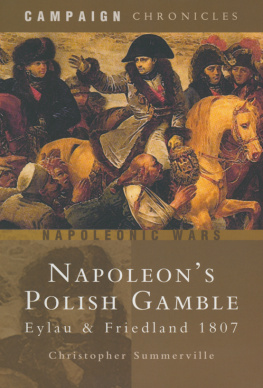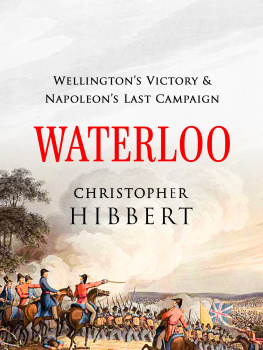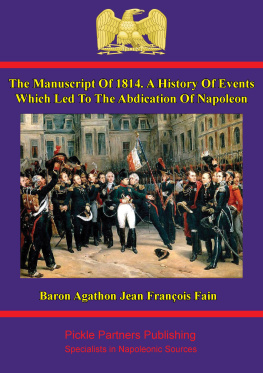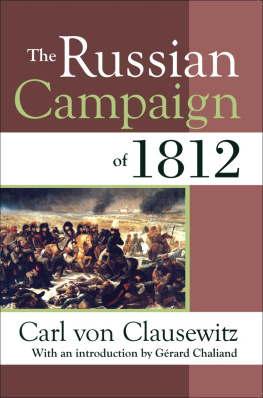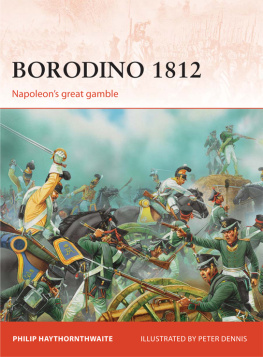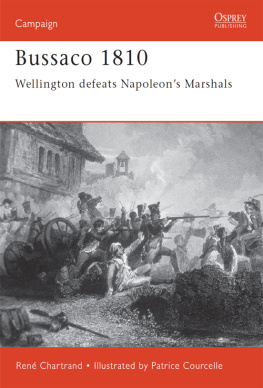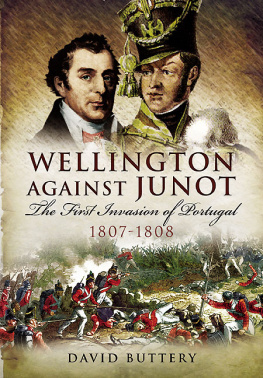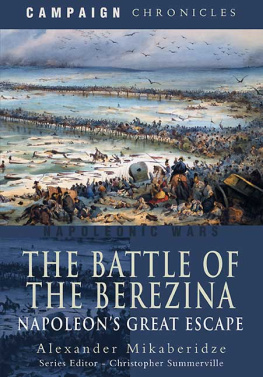Napoleons Polish
Gamble
Campaign Chronicles
Napoleons Polish
Gamble
Eylau and Friedland 1807
Christopher Summerville
Campaign Chronicle
Series Editor
Christopher Summerville
To Misia, with love
First published in Great Britain in 2005 by
Pen & Sword Military
an imprint of
Pen & Sword Books Ltd
47 Church Street
Barnsley
South Yorkshire
S70 2AS
Copyright Christopher Summerville 2005
ISBN 1-84415-260-X
The right of Christopher Summerville to be identified as Authors of the Work
has been asserted by him in accordance with the Copyright, Designs and
Patents Act 1988.
A CIP catalogue record for this book is available from the British Library
All rights reserved. No part of this book may be reproduced or transmitted in
any form or by any means, electronic or mechanical including photocopying,
recording or by any information storage and retrieval system, without
permission from the Publisher in writing.
Typeset in Garamond 11/13.5pt by
Mac Style, Nafferton, E. Yorkshire
Printed and bound in England by CPI UK
For a complete list of Pen & Sword titles, please contact
Pen & Sword Books Limited
47 Church Street, Barnsley, South Yorkshire, S70 2AS, England
E-mail: enquiries@pen-and-sword.co.uk
Website: www.pen-and-sword.co.uk
Contents
List of Illustrations
and Maps
Illustrations
Maps
I should like to state at the outset that figures given for troop strengths and casualties are approximations only. They are based on statistics quoted in Western sources including David Chandler, George F. Nafziger, F. Loraine Petre, Digby Smith and Sir Robert Wilson that I have usually adjusted to the nearest round figure. Where sizeable variations occur, a rough mean average is given. It should be noted that casualties refer to men killed, wounded, sick, and missing. Needless to say, a number of those listed as wounded or sick recovered to fight another day, just as many of the missing eventually turned up to rejoin their units. In other words, the effective strength of the opposing armies was in a constant state of flux, making precise head- and body-counts almost impossible.
The theatre of operations encompassed what was then West, South, and East Prussia possessions of the Hohenzollern monarchs of BrandenburgPrussia, whose capital was Berlin. With the exception of East Prussia, this land had been plundered from the ancient kingdom of Poland during the seventeenth and eighteenth centuries: consequently a mix Polish and German names was imposed on the landscape, as reflected in contemporary sources. For the readers convenience, therefore, a list of German place names with present-day Polish (and in some cases Russian or Lithuanian) equivalents is provided as an appendix. Meanwhile, it should be noted that in the main, Preussisch-Eylau (present-day Bagrationovsk) has been shortened to Eylau.
Finally, I would like to thank those who have helped and supported me during the preparation of this book: Tony Broughton, Robert Burnham, Greg Gorsuch, Rupert Harding, Ewa Haren, Dr Martin Howard, Alexander Mikaberidze, Jonathan North, Stephen Millar and Ken Trotman Ltd.
C.J. Summerville
York 2005
Mind, body, spirit. These are the three elements to our story. The mind constitutes the political and military objectives of the rivals, and particularly those of Napoleon Bonaparte, whose strategical vision drives the campaign. The body is the theatre of operations itself, formed by the carcass of the once-great kingdom of Poland, dismembered by powerful neighbours and awaiting resurrection. The spirit is the animating force behind the actions of the soldiers: Frenchmen fighting for Napoleons ambition; Russians fighting for the tsars honour; Poles fighting for freedom; Prussians fighting for their lives. And all attempting to survive in the harshest conditions imaginable.
The Polish Campaign of 180607 is widely regarded as one of the bitterest conflicts of the nineteenth century. For some, it was a war of conquest; for others a war of liberation; for most a war of extermination. But for Napoleon, it was a war of wits: for his ultimate aim in Poland was not the liberation of an oppressed people, but the fettering of a free mind to his own will the mind in question being that of Alexander, tsar of Russia.
On 2 December 1804 Napoleon Bonaparte crowned himself emperor of the French. This theatrical event marked the end of eleven years of war fought in the name of Revolution, while raising the curtain on a further eleven, fought in the name of Empire.
To the dynastic heads of Europe, Bonaparte was an upstart, an adventurer, and perhaps worst of all as the Duke of Wellington famously observed no gentleman. A fact illustrated by the abduction, trial and execution of the hapless Bourbon prince, Louis Antoine de Bourbon-Cond, duc dEnghien, on 15 March 1804. An act of terror designed to overawe his Royalist adversaries who continued to hatch murderous plots against him Napoleons liquidation of dEnghien (a suspected plotter, but in the event totally innocent) had the desired effect. But the dEnghien affair sent shockwaves through the drawing rooms of Europe, unleashing a howl of outrage from blue bloods already convinced Bonaparte was the bastard child of the Revolution.
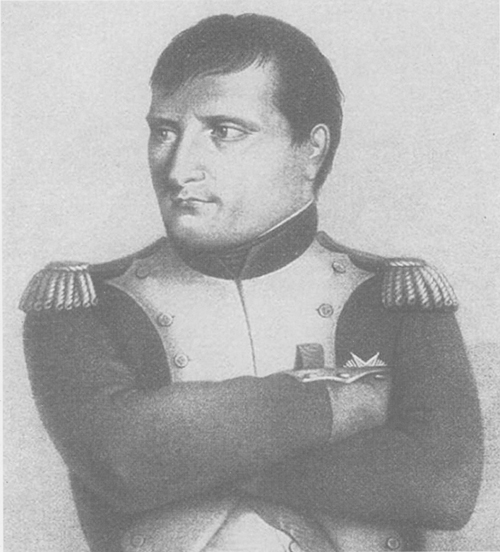
Napoleon Bonaparte (17691821) painted by the artist Vigneux, The Corsican Ogre looks askance at the crowned heads of Europe, determined to found his own empire.
Thus the forces of legitimacy the absolute monarchies of the Ancien Regime were determined to topple the Corsican Ogre, turn the clock back, and carry on as if the French Revolution had never happened. Backed by British cash, a coalition was formed against France: the third to take the field since the Revolutionary Wars broke out in 1792.
The principal members of the Third Coalition Britain, Austria, Russia were confident of success, despite the fact France had been preparing for over two years for a major war. But on 2 December 1805 Allied hopes were dashed by Napoleons staggering victory over AustroRussian forces at Austerlitz, in what is now the Czech Republic. Austria immediately sued for peace, her emperor obliged to renounce the hereditary tide of Holy Roman Emperor and with it control over much of Germany (then a patchwork of independent states). Meanwhile, the Russians retreated behind their borders, and the British behind the wooden walls of their Royal Navy. Both nations remained belligerent, but with Austria hors de combat

